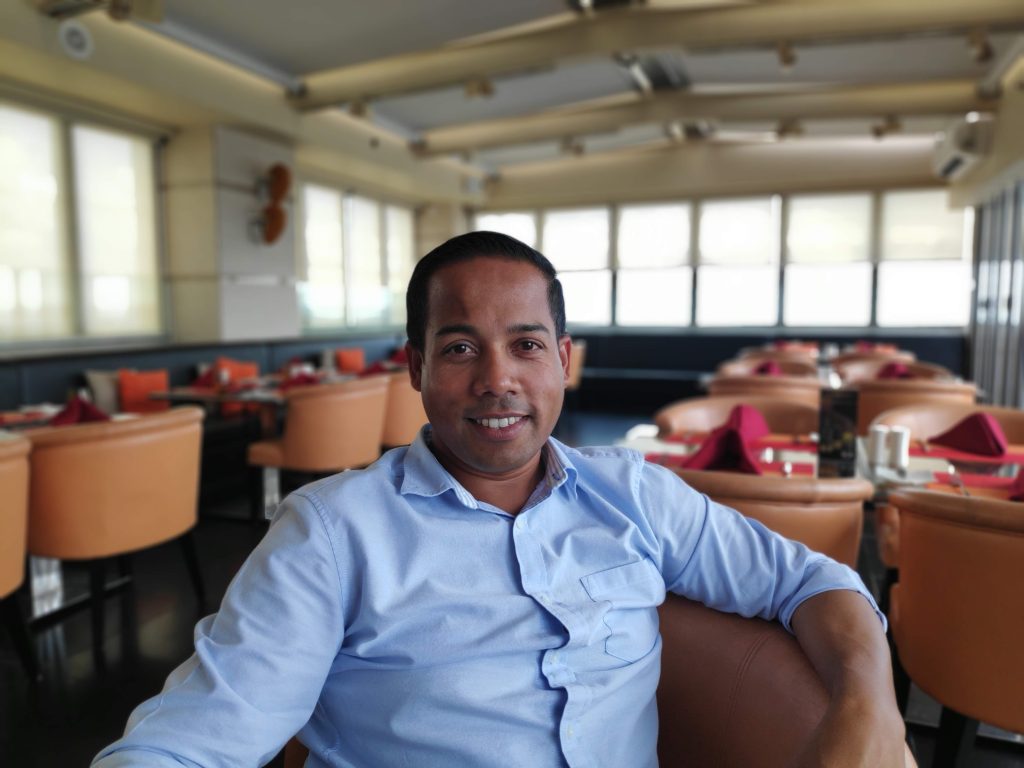
Afeef Hussain is not only the founder of Maldives Speakers Club, he is also the President of the Maldives Association of HR Professionals (MAHRP). This puts him in a unique spot from understanding the needs of both professional speakers and the HR community. HR and Learning & Development (L&D) have a budget every year to spend on employee development and they are constantly looking for good speakers.
We invited Afeef to come address the monthly meeting of Professional Speakers Association of India (PSAI) via Zoom. From his two decade experience, here are the nuggets of wisdom that Afeef shared on how Professional Speakers can get better and get more global speaking gigs.
- This is NOT about you. Its about the client. Whatever topic you are speaking, you have to ensure that the topic has to be relevant to the client. Your talk must be customized to the needs of the client. Do a lot of research about the brand. About the industry. Give relevant examples.
- The Power of asking the right questions in the proposal stage. As Professional speakers, one must set up meeting with the core organizing team from the client’s side to find out more about the event, the theme, the pain points and how your talk can add value to the client.
- Focus on adding more value than the client expects. This is the secret of getting repeat bookings. Ask them, ‘What more can you do for the client that will add more value to them’. This attitude is highly appreciated by the client. Afeef quoted an example of a trainer called Robin who offered free webinars after his speaking engagement was done. By doing this, the clients keep in touch with the speaker. More and more clients will look at why they have to hire foreign speakers. It has to be about what they do AFTER the speaking assignment is done.
- You must be mindful of what is happening in the industry before you speak. Never add old research material. It has to be relevant. It has to be recent. It has to be contextual. A good way to do this is to continuously keep collecting stories and key information. Take the effort to track the new developments in the industry. Take relevant examples from other industries but applicable to the industry where your client is in.
- As professional speakers, we have to be role models. A) Lead Yourself before you lead others. B) Study and learn everyday. Including holidays. C) More than managing time it has to manage enthusiasm.
- Intentionally find ways to get better with every single speech. What could I have done better? What more could I have done to add value to the audience? In the last 24 hours, what did you do that will make you a better speaker? Keep asking this question to yourself everyday.
- We must practice what we preach. Speakers lose value when they don’t reflect what they are doing and what they speak about.
- Develop a global mindset and a growth mindset. Speaking and serving is a mindset. Example: Nick Vujicic, a person with no hands and no legs tried to get speaking opportunities. Even his request to give free talks in schools was turned down. Finally, he got his chance at his 51st He got paid US$50. That was a small start. Because Nick kept improving himself with every talk, he started to get more speaking opportunities. He is now a multi-millionaire.
- To the question of how HR heads select speakers, Afeef answered that they ask for reference from the last couple of clients who hired the speaker. This has helped them to select the right ones and avoid speakers who are not good. So, this means that professional speakers must establish good relationship with clients.
- Afeef stressed again and again the importance of Content customization for that particular client. Cookie cutter presentations must be avoided.
- As part of the talk, look at adding extra value by providing new materials like a Workbook, a report or an ebook. These extra reading materials are highly appreciated by the participants. If the participants are happy, then the client is happy.
- To the question of how the presentation changes from a speech to a masterclass, this is what Afeef replied. For masterclass, they look for application of knowledge. They look for actionable points. There should be workbooks or worksheets. There should be practical work. There should also be good follow-up after the masterclass or workshop to make sure that the learning from the session are implemented. There should be an audit done to ensure that the session has made a difference.
- How do speakers make themselves visible and known in other countries? Here is the answer that Afeef gave. Be very active on social networking sites. Use Linkedin and Facebook extensively. Share your lessons and your speaking opportunities with others. Don’t worry about what others think. Just a website alone is not enough. We have to proactively let the world know the places where we have spoken at. In addition to letting people know where you spoke at, add extra value by adding interesting lessons or experiences. Example, James Taylor does a video in every country that he speaks at with a key lesson that is very unique to that country.
- Be a community person. Post notes about the event you spoke at. Can an audience who did not attend your session learn from it. Reach out to a wider audience. This helps in establishing yourself as an authority while also making it easy for others to refer you as a speaker.
- Talk about your inherent strength. Afeef gave an example of how Lux Resorts roasts its own coffee. Its one of the very few luxury resort chains in the world to do so. This has set itself apart and is its USP. There are examples of clients who have decided to stay at their resort because they love their coffee so much. So, focus on your USP.
- Look at all big speakers and learn from them. Speakers like Ron Kauffman, Marshall Goldsmith, Tony Robbins, Robin Sharma all make 5 figure speaking fees. Clearly, they are doing somethings right. Look at what makes them great. Look at how they build their speaking business. Continuously keep learning.
Recent Posts

